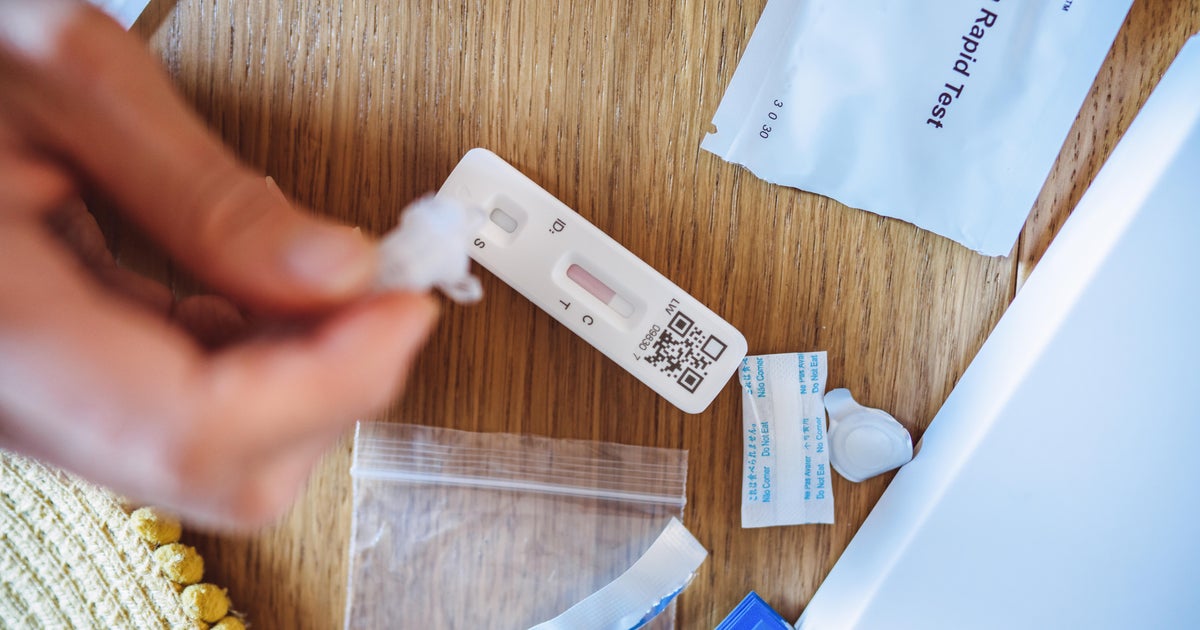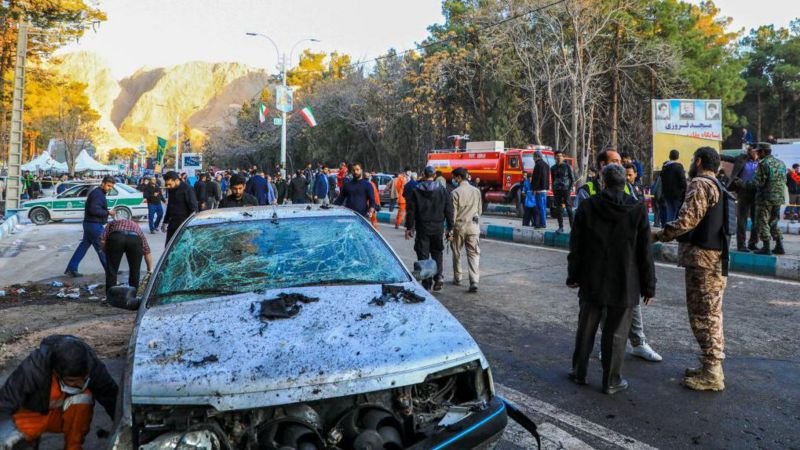[ad_1]
Welcome to our first Trump on Trial newsletter of 2024, a year that’s almost certain to put American democracy to the test.
If the polls prove right, Donald Trump is on pace to lock down his party’s 2024 presidential nomination. And his campaign will unfold as the courts are jammed with accusations of his misconduct.
Trump will be juggling hearings — and potentially a trial or two — in his four criminal cases. He could lose control of his business in a civil fraud case. And he will find out if states can brand him as an insurrectionist and remove him from their ballots, legal moves that are likely to end up in front of the Supreme Court.
This pileup of problems would make for utter chaos in a normal year, but 2024 will be anything but normal. Trump’s legal woes are set to crash headlong into his crowded campaign calendar, with the first collision coming this month when, as he told Maggie, he wants to testify in a New York case beginning just one day after the Iowa caucuses to determine how much he will have to pay a woman he has already been found guilty of defaming.
To help prepare for a year like no other, we have mapped out a few landmark issues and events that will help determine Trump’s fate.
Insurrection
This week, Trump’s lawyers asked the Supreme Court to settle a dispute over whether he can be removed from state ballots under the Constitution.
The measure in question, Section 3 of the 14th Amendment, was put in place after the Civil War to stop Southern rebels from serving in important federal positions. So far, two states — Maine and Colorado — have found that Trump can be considered an insurrectionist for having incited the Jan. 6 Capitol attack. But other states have disagreed, and Trump is mounting a legal challenge to the Maine decision as well as appealing the Colorado decision to the Supreme Court.
If the Supreme Court takes up the case, as it is expected to do, its consideration of the issues could begin as soon as this month, during the early stages of Republican primary voting, which starts in Iowa a week from Monday and moves on to New Hampshire the following week.
Trump’s team, in a kitchen-sink approach to reversing the Colorado ruling, has argued that millions of voters could be disenfranchised if states are permitted to keep him off the ballot, that the assault on the Capitol wasn’t an insurrection, and that even if it was, he didn’t incite it.
The Supreme Court could also become entangled in determining whether Trump is immune from prosecution on federal charges of plotting to overturn his electoral defeat in 2020.
The fight over immunity is the single most important part of the election interference case, involving both untested questions of the law and consequential issues of timing. The case is currently set to go trial in Washington in March — a day before Super Tuesday — but remains on hold until Trump’s attempts to dismiss the charges on grounds of immunity are resolved.
Those efforts are now in front of a federal appeals court in Washington, which has agreed to consider the issue on an accelerated schedule. A three-judge panel is set to hear arguments on Tuesday, and Trump is making plans to attend, although he could decide against it.
The immunity appeal is legally significant because it centers on a question that has never before been asked or fully answered: Can a former president be held criminally liable for things he did in office? All of this is new because Trump is the first former president to have been charged with crimes.
But the immunity battle, even if Trump loses on the substance of his arguments, could still determine whether the trial will be held before the election in November.
The Supreme Court could have an enormous impact on this question.
If the court moves quickly to hear the case, the federal election charges could be heard by a jury in the late spring or summer. But if the court moves slowly, there may not be time for a trial to be held at all before the election is decided — depriving voters of a chance to hear the evidence assembled by the prosecutors and giving Trump the opportunity, should he be elected, to have the Justice Department drop the charges.
Schedule changes
If the federal election interference trial is postponed into the summer or beyond, there are indications that another trial could take its place: one based in New York on charges that Trump took part in hush money payments to a porn star in the run-up to the 2016 election. If the New York trial were to go ahead, it could take place during the later stages of the primary season or as Trump — assuming his campaign does not falter — prepares to formally accept the Republican nomination at the party’s convention in July in Milwaukee.
That case, brought by the Manhattan district attorney, Alvin Bragg, will be familiar to many for its colorful cast of characters. There is Stormy Daniels, the porn star who claims that Trump had an affair with her and sought to buy her silence as he ran for office the first time. Then there is Michael Cohen, Trump’s former lawyer and fixer, who is poised to tell a jury that he made the payments on Trump’s behalf. Prosecutors claim the company’s business records were doctored to cover Trump’s tracks.
An inflection point in the documents case
We won’t know much about how Trump’s other federal case is likely to unfold until at least March 1. That is when Judge Aileen Cannon has scheduled a hearing in Florida to consider a new date for the trial.
The Florida case centers on charges that Trump illegally held on to dozens of highly classified national security documents after he left office and then conspired with two of his aides to obstruct the government’s efforts to retrieve them.
Late last year, Judge Cannon expressed concern that her trial might “collide” with the election trial in Washington and made some adjustments to its timing, mostly related to filings involving the classified materials at the heart of the case.
While her timing shifts have made it virtually impossible for the trial to begin on its current start date of May 20, we will have to wait until the hearing in March to see how long the proceeding will be delayed. Should the trial be pushed back until after Election Day, and if Trump were to win, the documents case, like the federal election case, might never go before a jury, or at least could be postponed until after he left office, given the Justice Department’s longstanding policy of not prosecuting sitting presidents.
Timing questions in Georgia, too
Trump’s trial in Georgia, on charges brought by a local prosecutor of tampering with that state’s election, is the only one of his four criminal cases that doesn’t yet have a formal start date. Prosecutors in the Fulton County district attorney’s office have said they want the trial to begin in August. But it remains to be seen if the judge will accept that time frame and if the trial will be held before the race is over. Trump’s lawyers have vehemently argued against it.
Trump’s lawyers will have to file their pretrial motions challenging the indictment on Monday. Expect to see court papers claiming Trump is immune to the charges in Georgia in a way that echoes the immunity arguments in Washington.
New York court dates
Two other matters will be on the Trump docket this month even as voters in the Republican primaries start the process of selecting their nominee. The New York attorney general’s civil fraud case against Trump and his company is scheduled to wrap up with a decision from the judge on the penalties he must pay. The former president said this week that he intends to be in the courtroom.
Separately, Trump is facing a damages trial for defaming E. Jean Carroll, a New York writer who said he raped her in a New York department store in the 1990s. A jury last year said he had sexually abused her. Trump has said he also intends to be on hand for that trial, which starts in New York a week from Tuesday.
Your questions
We’re asking readers what they’d like to know about the Trump cases: the charges, the procedure, the important players or anything else. You can send us your question by filling out this form.
Which past presidents have undergone the litigational challenges encountered by Donald Trump? — Frank Snitz, Berkeley, California
Alan: No past presidents have faced anything even close to the array of legal troubles Trump is facing. Trump is the first former president to have been charged with a crime and the first to have his name removed from the ballot under a constitutional provision barring insurrection. He is also the first former president to be facing trial — or rather, trials — as he runs again for office.
Where does each criminal case stand?
Trump is at the center of at least four separate criminal investigations, at both the state and federal levels, into matters related to his business and political careers. Here is where each case currently stands.
[ad_2]
Source link




















